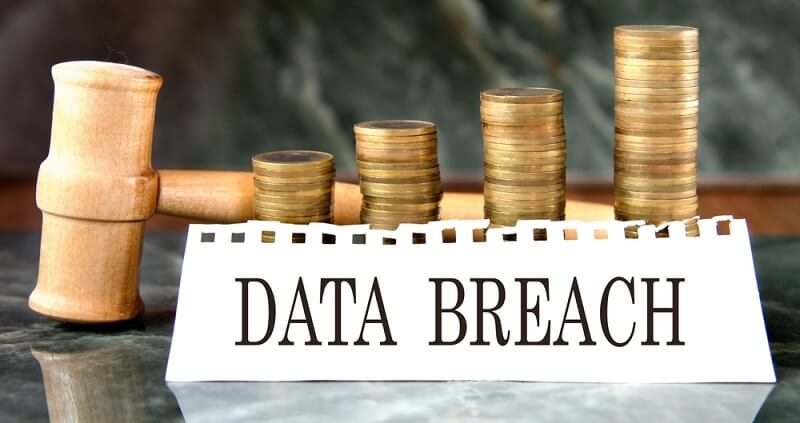What Are The Benefits Of Financial Insurance?
What Are The Benefits Of Financial Insurance?


Anyone who has ever suffered a significant financial setback knows how challenging it can be to recover and get back on track. Even if you're smart about money, unexpected costs and expenses can creep up on you anytime, leaving you with little to no financial safety net. Fortunately, there are a variety of different insurance products available that can help protect your financial future from risk and uncertainty.
Financial insurance helps protect your assets in an unforeseen circumstance or disaster. These policies have many different names depending on what they cover, but they all serve the same purpose: to provide financial support when you need it most. Financial insurance is not typically top-of-mind for most people, but it's essential to understand the various types of coverage available to determine which (if any) are suitable for you.
Understanding financial risks
When a corporation lends loans, invests, expands, spends money, or increases its costs, it puts its cash flow at risk. Several situations can and cannot be covered by insurance. Some firms ensure the credit they offer to their customers. In contrast, others require insurance to safeguard themselves from growing operations overseas in risky countries.
Financial risks can arise from operational, informational, strategic, regulatory, or people issues. Risk management is the process through which parties aim to minimize their exposure if things go wrong. Risk is defined in part by the insurance industry as the likelihood that losses and/or bad occurrences may interfere with an organization's capacity to accomplish its objectives.
In the business sector, these are frequently financial responsibilities that businesses and organizations may have, and insurance is purchased to safeguard and financially reimburse them to some level if a loss occurs that prevents them from meeting those obligations.
Financial insurance may be purchased for, for example, a building coalition constructing a new skyscraper. They may take out insurance if one of the partners goes bankrupt before the work is done, assuring that they will fulfill the deadline one way or the other.
The landowners may need this insurance as a condition for allowing the project since such policies are costly — but erecting a structure and having trust in the contractors during a two-year build is also a significant risk. Finance insurance often covers currency fluctuation losses and increased raw material costs that might threaten a project.
Comprehending premium financing firms
Premium finance firms arise because of such huge policies. Instead of paying the large insurance cost up front, known as the premium, a financing business is hired to pay the premium in full. The policyholder then pays the financing in installments.
Benefits of financial insurance
Credit protection
Financial insurance provides you with credit protection plans that can lower the risk of missed payments, judgments, and other financial setbacks that can hinder your ability to borrow money in the future.
Export credit insurance: It is a sort of financial insurance for businesses that sell their products in foreign markets. The coverage covers the exporter if a foreign importer defaults insolvent or refuses to pay for the exporter's shipments. Companies new to exporting may profit from purchasing an export credit insurance policy; however, they must also be aware of the risks that such plans entail.
The main purpose of export credit insurance is to lower the exporter's financial risk. The risk can originate from either commercial factors, such as an importer's insolvency, tardy payment, or failure to meet the payment conditions in the import/export contract, or political ones, such as war, political demonstrations, or the loss of the importer's license. Before issuing the insurance, the insurer evaluates the possibility of both sorts of losses in the transaction.
Exporters that have export credit insurance can acquire access to foreign working capital. By providing evidence of financial security in the form of a credit insurance policy, a company may convince financiers that it represents a lower credit risk and is thus more deserving of a sizable loan of cash. Companies that have export credit insurance can also acquire standby letters of credit, which allow a bank to guarantee payment on the exporter's loans if the importer fails to meet the import/export contract.
Identity theft protection insurance
Identity theft is a common risk for many people. It affects approximately 16 percent of the American adult population. Identity theft protection insurance covers expenses associated with restoring your identity, such as lost wages, credit monitoring, and time spent trying to deal with the situation.
Supporting the economy
Every day, organizations worldwide take significant risks, whether it's sending a vessel full of cargo past a pirate-infested coast or purchasing all the supplies in advance for a dangerous and pricey project. Insurance against such financial risks is intended to safeguard businesses and the economy. The economic engine continues to run by allowing corporations to take measured risks.
Economic progress is fraught with danger. When business owners decide whether to open a new storefront in a gentrifying neighborhood or service a specialized demographic that their products haven't yet reached, they assess the possible earnings against the risk of failure. Insurance facilitates growth largely by helping firms to manage risk, so encouraging them to expand their activities.
Risk reduction
The major method insurance contributes to economic development is through risk management. Entrepreneurs and company owners can limit risk by purchasing insurance plans that protect them from crimes, damages, liability litigation, or natural catastrophes that could otherwise be disastrous. Without insurance, building beachfront property in a hurricane-prone location would be impossible because a big storm might wipe out investment in an instant. Insurance eliminates that risk from the equation, making development more appealing.
Encouraging entrepreneurs
Startups often confront a wide range of financial challenges that threaten their capacity to turn a profit and perhaps their very existence. To some extent, their financial woes may be the result of events beyond their control, such as a downturn in the economy or the arrival of a new competitor in close proximity. Other concerns may be more directly tied to how entrepreneurs run their businesses. Thus, financial insurance is supremely important for these businesses.
Governments can increase the availability of insurance beyond what the private sector would normally provide by providing extra loss protections. For example, following the September 11 attacks, the federal government sponsored a public-private partnership that provided insurance to stimulate investment in areas vulnerable to terrorism.
Government laws and incentives can assist offer safety in regions that insurance companies may be hesitant to cover, such as a crime-ridden neighbourhood.
Financial stability
Financial insurance can stimulate investment by supporting financial stability and mobilizing funds. For example, the concentration of income from consumers buying life insurance policies offers cash that the corporation may invest elsewhere in the economy for higher returns.
Individuals understand that FDIC (Federal Deposit Insurance Corporation) insurance ensures the safety of their bank deposits, which encourages them to deposit funds in financial institutions that may subsequently utilize their cash to create new loans.
Safety Net
Personal and social insurance plans can also aid economic growth by assisting people in staying healthy, staying afloat between jobs, and preparing them for more appropriate assignments. Workers are urged to see physicians, receive treatment for accidents or illnesses, and avoid the financial burden that a catastrophic medical emergency might otherwise impose.
Unemployment and workers' compensation coverage enable people to withstand a temporary job loss and remain solvent while seeking work, making them available to those wishing to hire new employees to grow their firm.
Conclusion
Financial insurance can help protect you against any financial challenge you can imagine. It is helpful for businesses to take chances and boost the economic growth and development of the country. At Insuranceandleisure.com, you can find many insights related to financial insurance and more. Continue reading our blog to stay updated.
This content was created by AI



